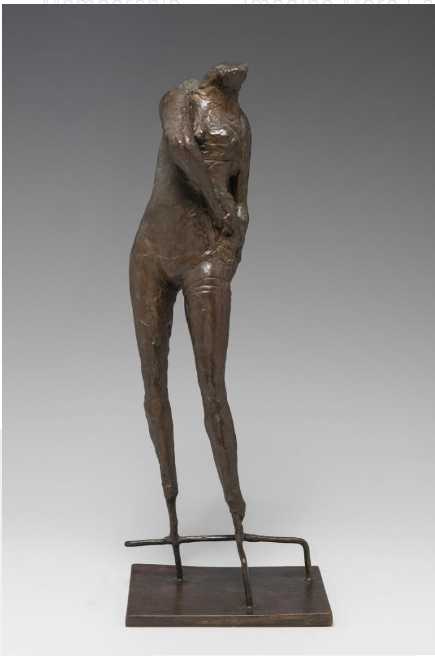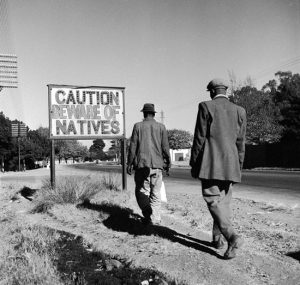Reg Butler (1913-1981), Standing Nude (n.d.)
Butler had great interest in the human body, particularly the woman’s body. Standing Nude is a person reduced to a body – an object. In Coetzee’s 1980 novel, Waiting for the Barbarians, his main character, too, is reduced from a person to a body by his captors, as seen in the included passage. The song “Summertime,” written by George Gershwin in 1934, gives encouraging words to a child from their parent, ensuring their protection. However, harm and objectification is inflicted upon many. Waiting for the Barbarians was inspired by the South African apartheid, which Coetzee, who was white, lived through. The horror and fascination of the dehumanizing events that occurred left a deep impression on him, similar to Butler’s fascination with the striped and contorted body. The image below is an example of the divide and hatred caused by the apartheid in South Africa.
“It cost me agonies of shame the first time I had to come out of my den and stand naked before these idlers or jerk my body about for their amusement. Now I am past shame. My mind is turned wholly to the menace of the moment when my knees turn to water or my heart grips me like a crab and I have to stand still; and each time I discover with surprise that after a little rest, after the application of a little pain, I can be made to move, to jump or skip or crawl or run a little further. Is there a point at which I will lie down and say, ‘Kill me – I would rather die than go on’? Sometimes I think I am approaching that point, but I am always mistaken.”
M. Coetzee, Waiting for the Barbarians
Categories: Spectacle, The Body, Colonialism




